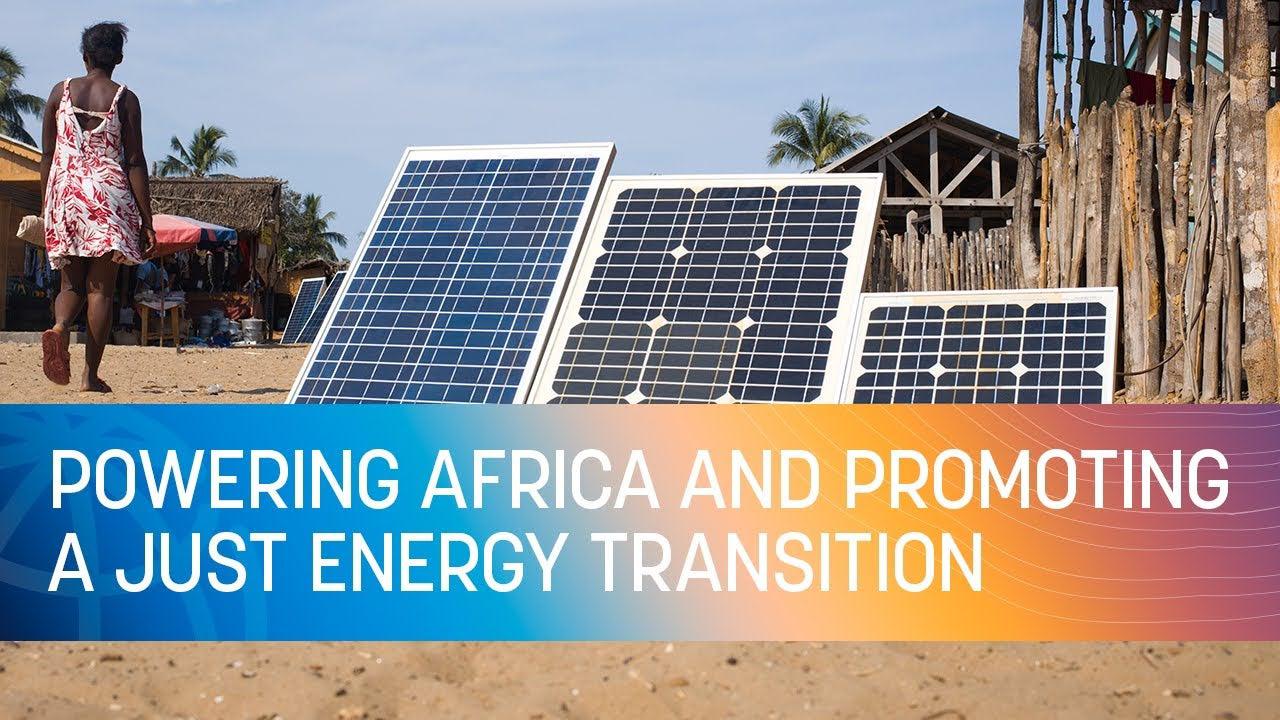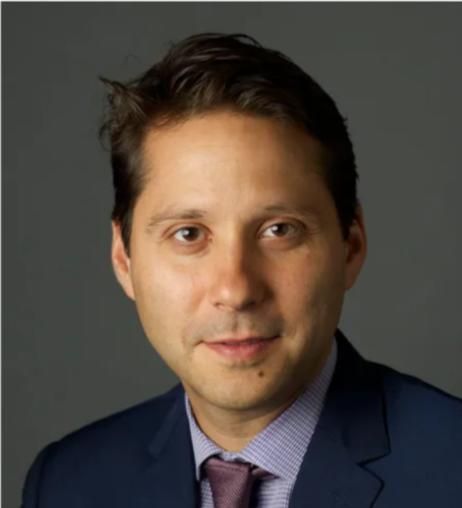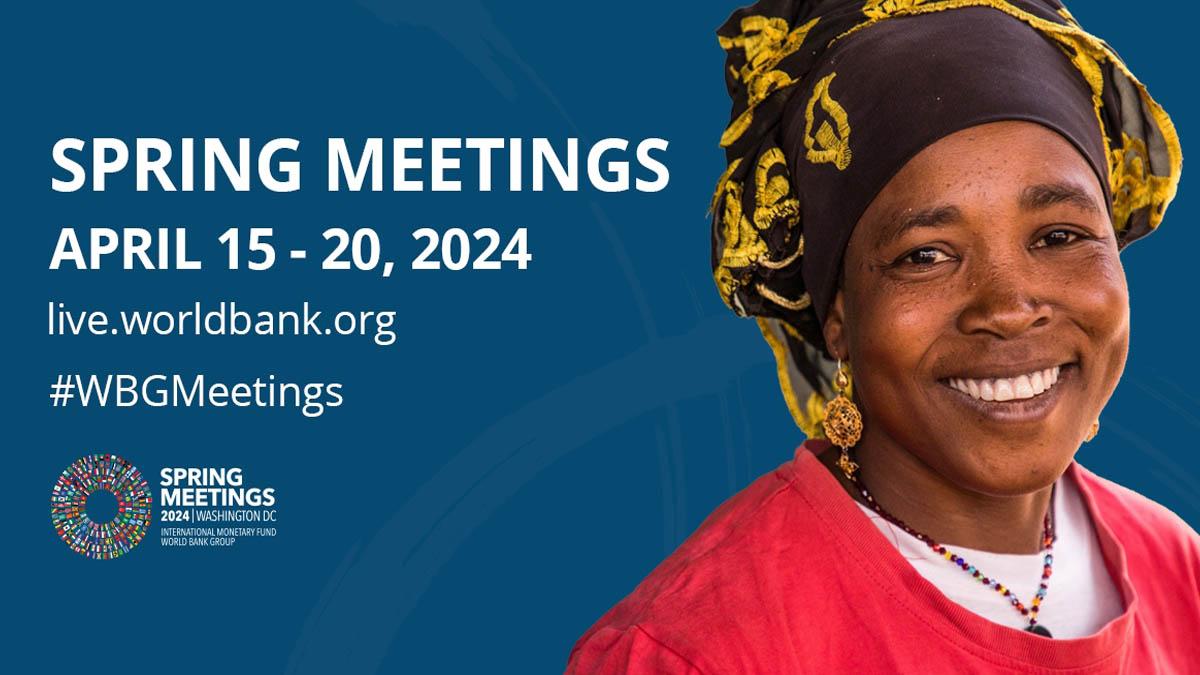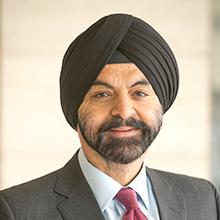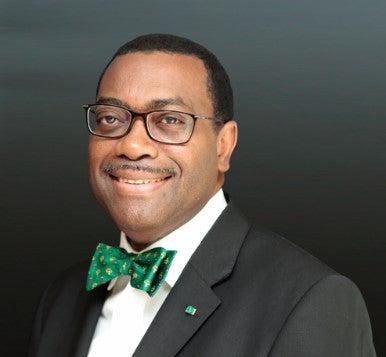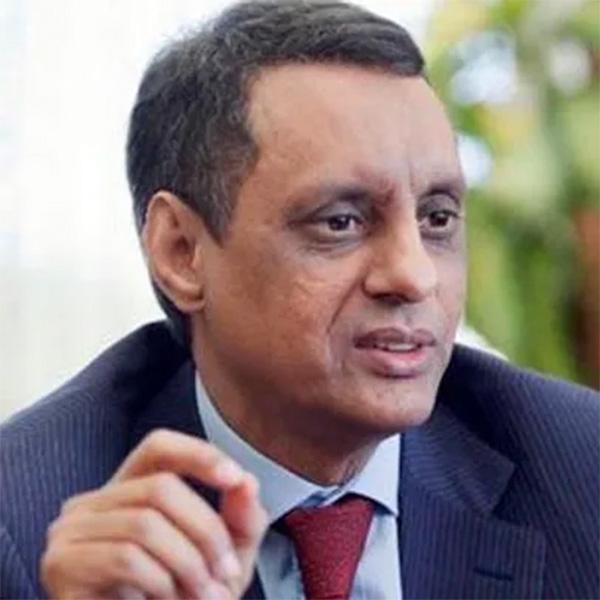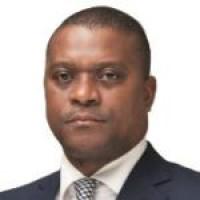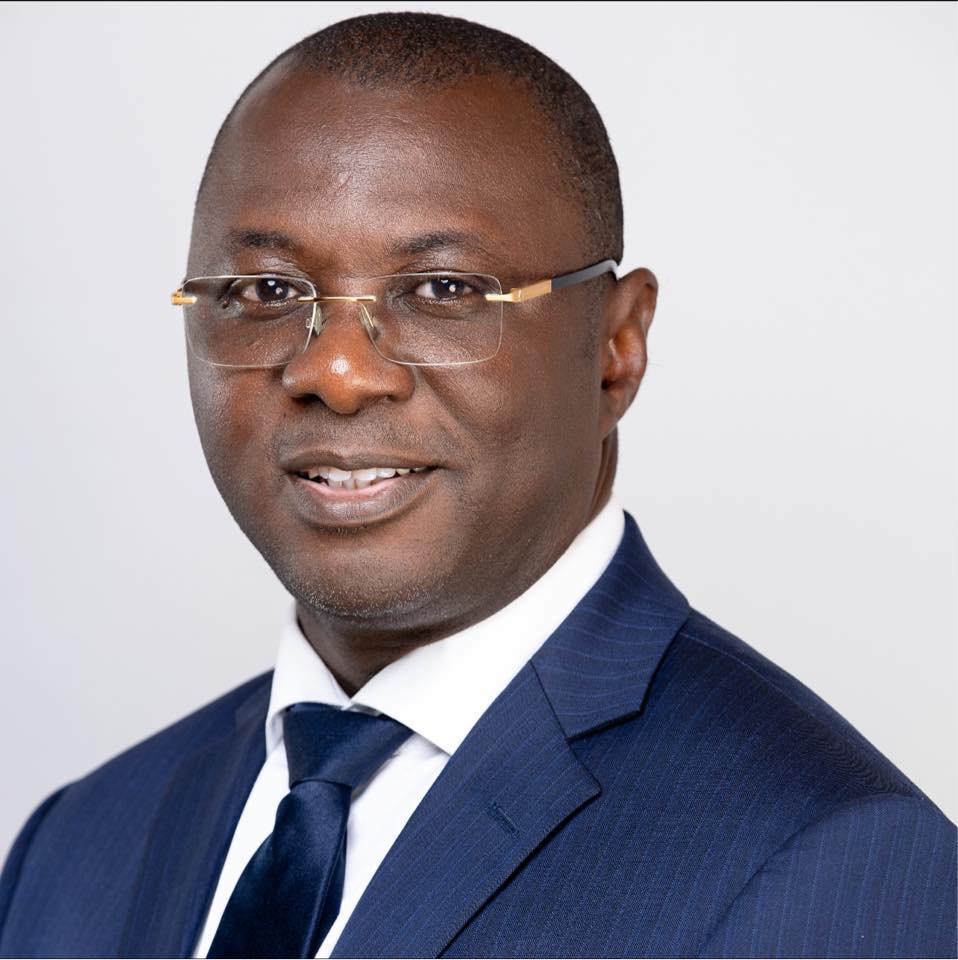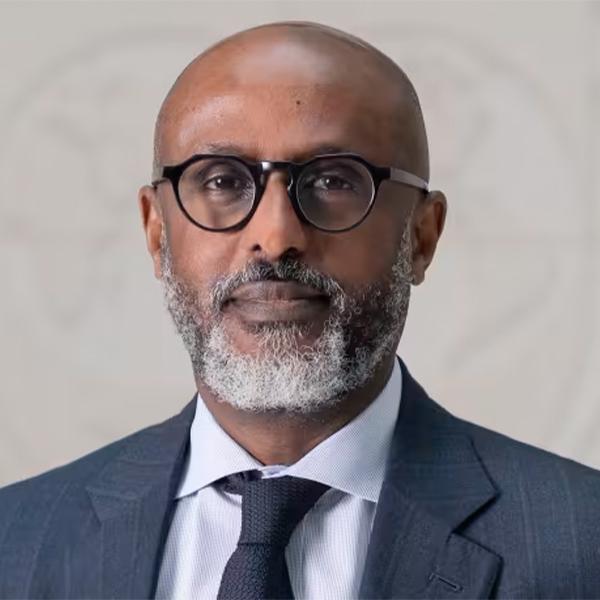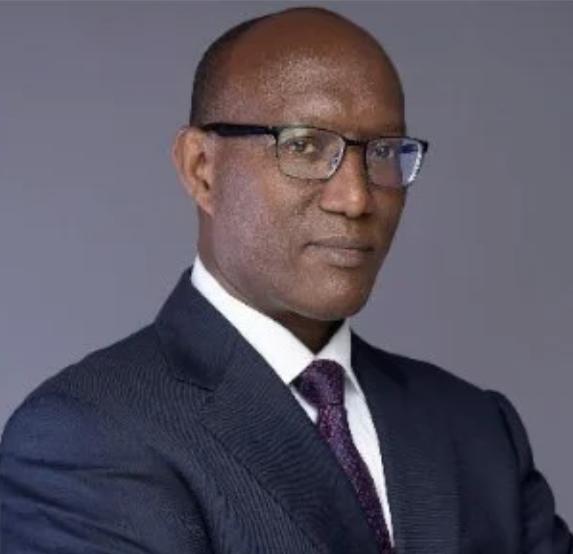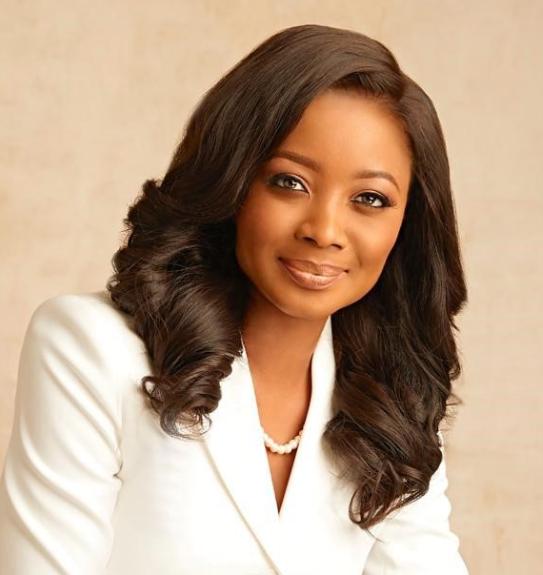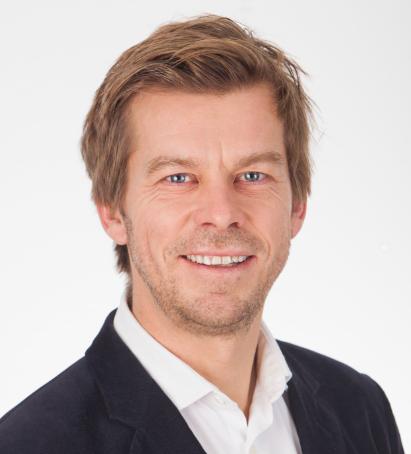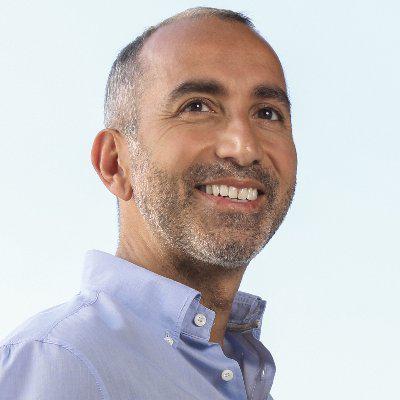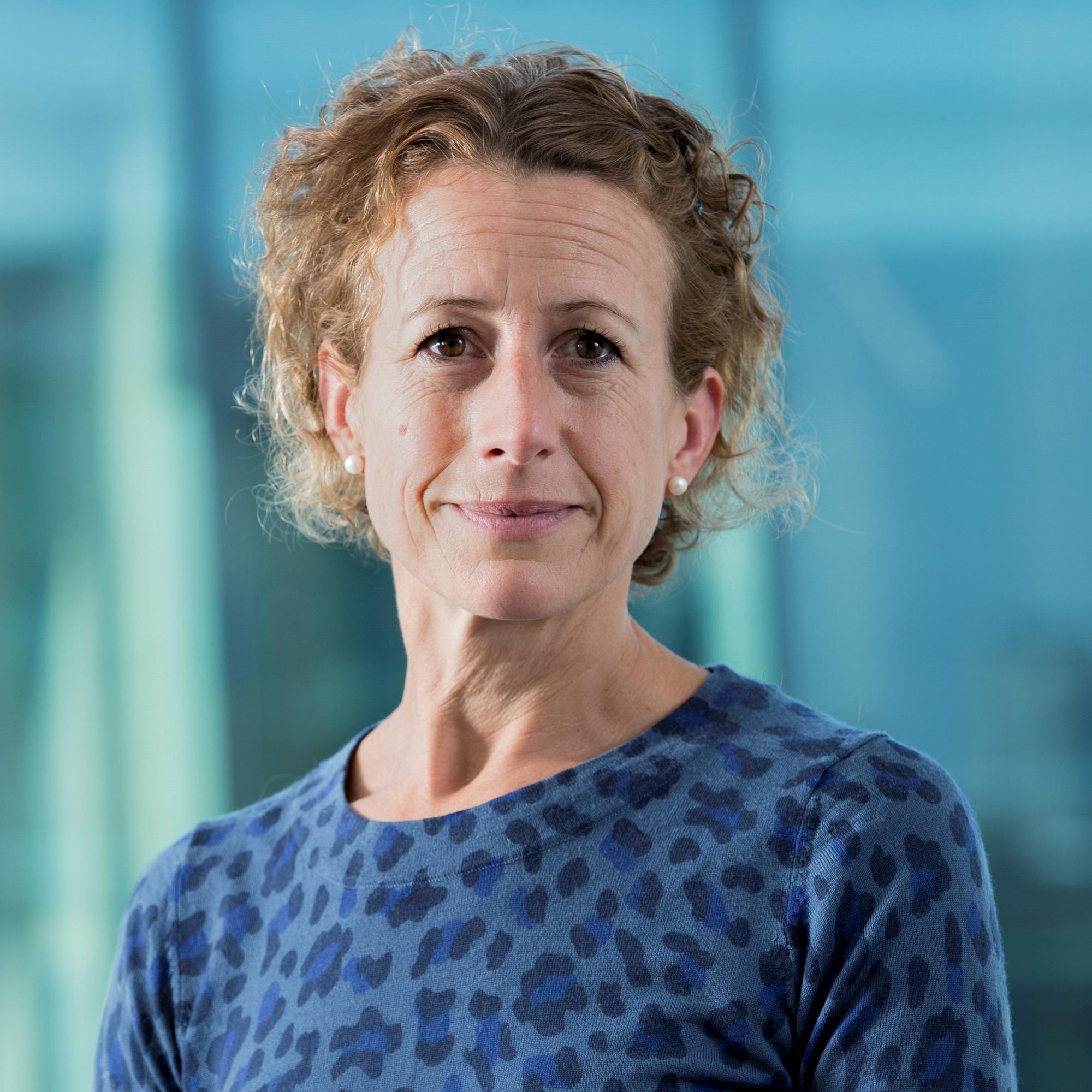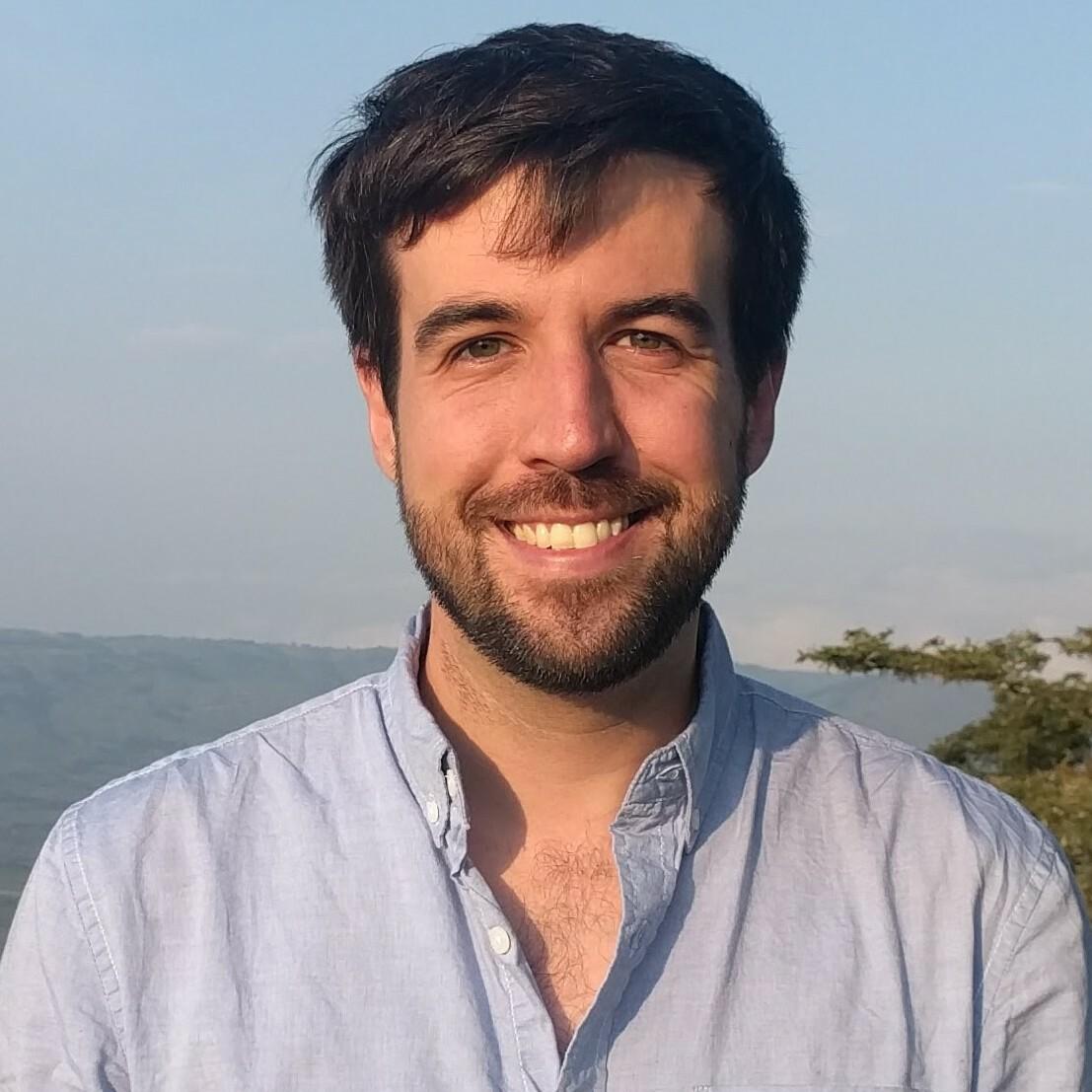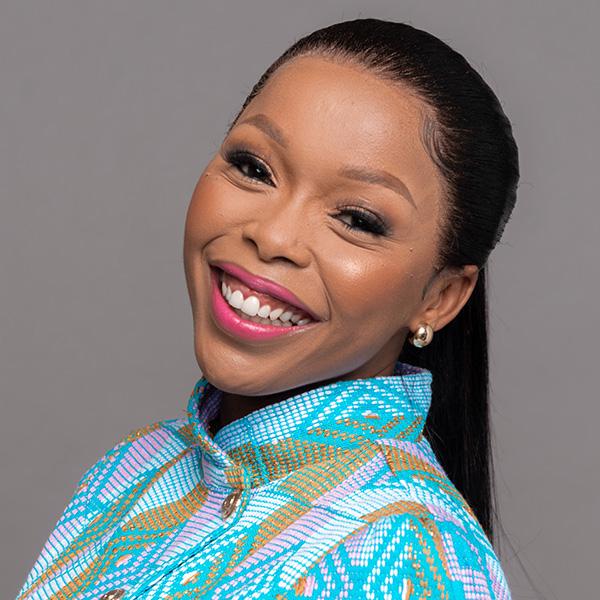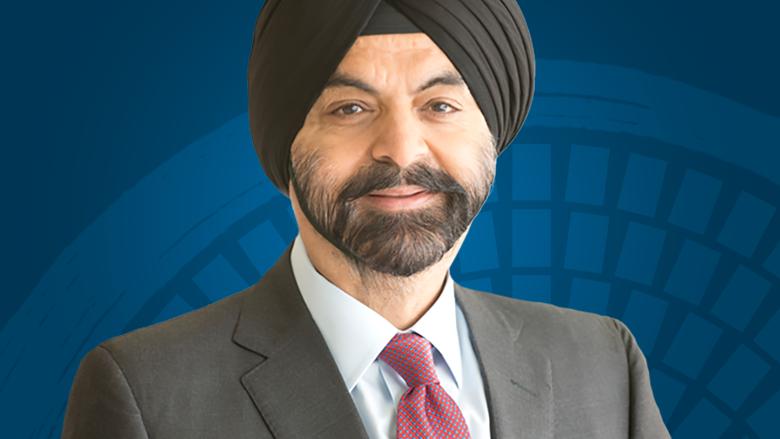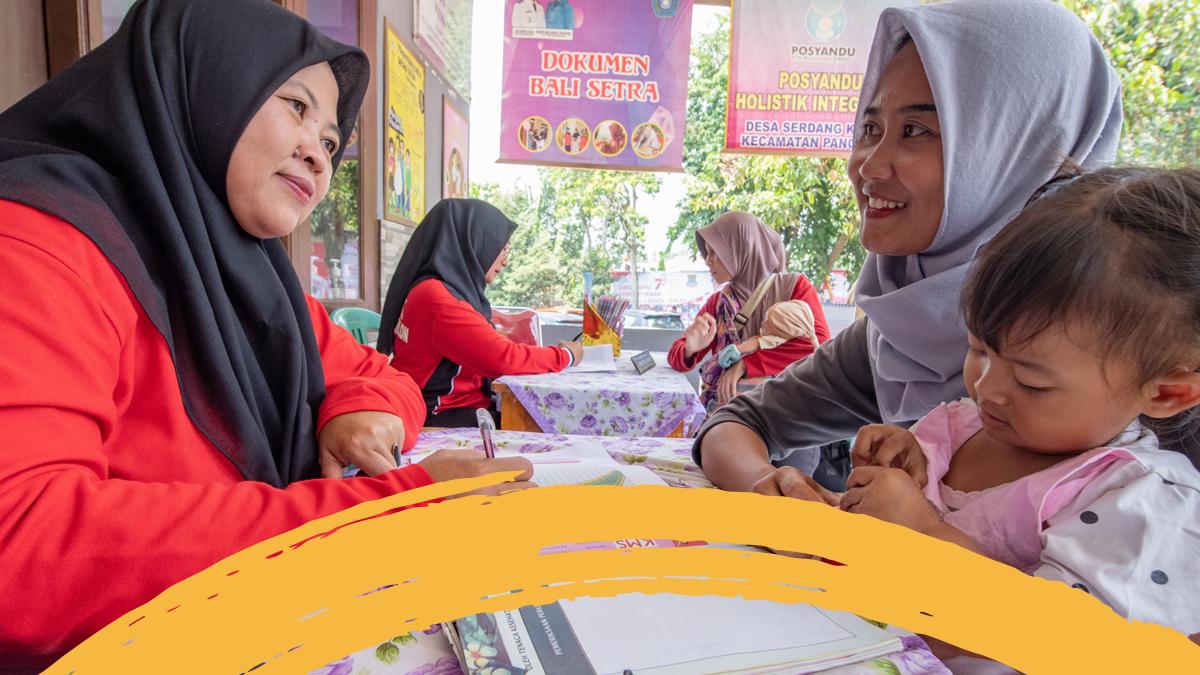[Video] Every day, people, businesses, and essential services throughout Africa are confronted with a lack of power. They must constantly adapt to overcome these challenges. The stark reality is that nearly 600 million people across the continent lack access to electricity. Electricity is a lifeline, driving economic opportunities, job creation, and enabling better education and health services. It's also vital for connectivity, greater innovation and robust growth. It's the key to unlocking Africa's full potential. Without it, a more equitable, prosperous, and competitive future remains out of reach. With advancements in technology and innovation, it is now possible to scale up electricity access, offering the potential to transform lives and economies across Africa. But this will require billions of dollars in investments to reach universal access by 2030. This challenge is an opportunity for transformative change, an opportunity to advance reforms, improve grid and off-grid access, and bring in private investments to accelerate progress. This is our moment to unite, to rally governments, businesses, development partners, and citizens. Together, let's power up Africa to make access to electricity a reality for everyone and to shape a brighter future for all.
[Nozipho Tshabalala] What an incredible call to action for a more equitable, prosperous, and competitive future for Africa. It's my pleasure now to welcome the President of the World Bank Group, Ajay Banga, and of course, the President of the African Development Bank, Dr. Akinwumi Adesina. Gentlemen, welcome. As we get into this conversation, allow me maybe to ask this first question to the both of you, and maybe Ajay, to start off with you, to describe the urgency and the importance of energy access in driving economic transformation in Africa. How would you frame the challenge and the opportunity that we can build on?
[Ajay Banga] First of all, thank you for doing this. And Akin, thank you for being here on stage with me. Akin is the person I first met when I was going through my nomination process and I flew to Abidjan for literally my first meeting was with him. I'm glad that today we are doing this together. 600 million people in the continent do not have access to any power, any, zero. And to me, that's an unacceptable situation in the year 2024. I think electricity is a human right. I think electricity is the basis by which people can get access to health, people can get access to education, people can get access to the ability to innovate and manufacture and build productivity. If you don't have education, you don't have health, you don't have productivity, you don't have jobs, there is no solution to poverty, and growth, and development. To me, getting electricity to people is mission one, two and three. I grew up in India. I saw the change in my own country where I grew up with the increasing access to electricity. I saw it in my own childhood. I'm aware of this directly in my own experiences. All I can say is, think about this as the important human right, which allows us to build jobs and capabilities in Africa. I'll end with one little comment here. I believe that the future of Africa with jobs for young people depends on five big areas. And Akin and I talked about this in my first visit with him. He will probably echo this with more passion than me. The first one is energy. If you start creating distribution, and generation, and transmission and all those jobs, but then the downstream impact of that electricity. Second, infrastructure, houses, bridges, ports, airports. Third is agri-business. And food, food security, that's a big part of what could generate jobs. Fourth is tourism. Africa is really, really fortunate to be a great opportunity for tourism and tourism jobs. Already, a number of African countries are doing so pretty well. I think the final one is healthcare. You will hear us in the course of this Spring Meeting talk a great deal about healthcare as well. I think about these five as enablers, but also as job generators. Point is, without energy, affordable access to energy, nothing is possible.
[Nozipho Tshabalala] Ajay, I think it's a really powerful opening, and you've really outlined how energy is the base to all economic development. I particularly love how you describe it as “mission one, two and three.” Dr. Adesina, let me bring the exact same question to you. How would you frame the opportunity and the challenge? And any reflections on what you've heard Ajay share so far?
[Akinwumi A. Adesina] Well, thanks very much. First firstly, thank you for coming to Abidjan when Ajay was nominated. In fact, the first thing that he and I talked about was, look, three things which Ajay and I agreed to do. First is, let's just solve Africa's energy problem.
[Nozipho Tshabalala] Right.
[Akinwumi A. Adesina] Second is, let's make sure Africa can feed itself. Of course, to do that, you also need energy to be able to power industries and value addition and all of that. The third one is just to make sure that we create jobs. You can't create jobs if you don't have energy rolling in an economy. Look, energy is like blood inside of your body. You got blood, you live. Economists strive on energy. It's a direct correlation between the GDP growth you're going to have with the amount of energy you are able to develop, and to generate. Whether it's you're going to power your industries, you're going to make sure you're competitive. No economy can grow in the dark. No economy can industrialize in the dark. No economy can be competitive in the dark.
[Nozipho Tshabalala] Sure.
[Akinwumi A. Adesina] Africa is pretty much, in my view, tired of being in the dark. At the same time, [unintelligible], we've made… Ajay, I think that we've made it abnormal, so normal that we are used to it. When I was a grad student at Purdue University, I got in there at 1983, and I remember coming out of Nigeria where we didn't have electricity, and I got to Purdue University. I was staying with a couple there who signed up to receive grad students. I stayed in their home for about a few days. I got out my suitcase, and I got all my clothes out, and I started ironing them. After that, the wife of the professor said, “Akin, what are you doing? You've been at it for one hour.” I said, “Yes, that's because they might take the electricity out.” She said, “Not in the United States.” But where I was coming from, we had gotten used to that. What I'm saying is getting universal access to electricity in Africa is fundamental. I agree with Ajay, it's a fundamental human right, but more than anything else, it's also a sense of pride.
[Nozipho Tshabalala] Right.
[Akinwumi A. Adesina] I don't want to have a continent that is known for being in darkness. That's why I'm determined that we are going to solve this problem.
[Nozipho Tshabalala] Dr. Adesina, you have spoken about energy being the blood that keeps an economy alive. You've spoken about no economy grows in the dark, no economy becomes competitive in the dark. But also, how do we ensure that we reclaim our pride and ensure that we don't normalize that which is abnormal? It's a big ask, Ajay. I'm listening to what you're saying, listening to what Dr. Adesina is saying. How are we going to do it? Is the question that I want to put to you. And in particular, what needs to be true for the World Bank as an institution to be part of the solution and making sure that we can change this narrative?
[Ajay Banga] Look, I think we've all admired the problem for long enough. This thing of 600 million people being without power is not new news. It's just that he mentioned it to me on my first trip, but it wasn't new news to him or to me. I just didn't know the number was 600 million.
[Nozipho Tshabalala] Yeah.
[Ajay Banga] That part I got educated when I went to meet him. But I will tell you that we need to move past admiring the problem to making tangible results possible. And what you will hear from both of us today is a commitment. And that commitment, back in COP28, the World Bank made a commitment to connect 100 million Africans to affordable energy by 2030. So, six years or so. What we are doing today is multiplying that commitment by bringing in all parts of the Bank across all parts of Africa and really thinking how we can make this work. We're going to multiply that commitment to 250 million people out of that 600. Akin is already ready to go to 50, but Akin is a guy who dreams big, so his head is going beyond the 50, but he's starting with the 50. Just let's take that 50 for a minute. Let's keep us where we are today. 250, 50, 300 million. If we can reach 300 or a 600 by 2030, that's great stuff. That's the commitment we need to make. But that's going to take effort from across all parts of the Bank. It'll also take efforts in terms of financing. It'll take efforts in terms of working with governments. It'll take efforts in terms of working with the private sector. We'll talk about that, but to me, this is the big number, 250 million and 50 million, 300 million on the table, 2030, affordable access to energy.
[Nozipho Tshabalala] It's a massive number. 250 plus 50, it gets us through 300. Let me follow up on that because we're tight on time, so I'm keen to double click on it right now, Ajay. It's a large-scale effort. You've already spoken about it requiring different parts of the Bank. You've spoken about it requiring governments and other stakeholders. Who else needs to be involved? Who needs to be in this mission to make sure that this comes to life?
[Ajay Banga] We're going to need three things. We're going to need money, financing. Our estimate in the World Bank alone for the 250 million is you're going to take more than 30, 35 billion dollars to make this happen. And that's going to take money from IDA, which is our lending arm for the nations’ most in need, grants and concessional financing. That's the one that's coming up for replenishment at the end of this year. If we do make this happen, a large part of that commitment will go from IDA into this one sector of getting energy into Africa. The second part is it's going to take the private sector because you can't do this without them being involved. But to get the private sector involved, first, you're going to have to get governments to get their head in the game.
[Nozipho Tshabalala] Yeah.
[Ajay Banga] What do I mean by that? Again, something we talked about, you need utilities to be capable of paying the generators. You need utilities to have tariffs and policies that make them capable of being liquid and profitable enough. I don't mean that you should raise tariffs on the poorest in society. We both believe in social safety nets, and we fund them. But it's beyond that. It is pay the right amount for what you can pay. I think Nigeria, I don't know if my friend from Nigeria is in the audience, but he's in Nigeria, he knows this. They're currently going through an enormous correction. They have to manage it well for the poorest sections of society to not be as impacted as the others, but they're doing it to make their utilities capable. We need regulatory certainty and tariff policy clarity and good management teams running utilities and transmission lines, because that's what makes the rest of it possible. Yes, financing. Yes, government. And third, the private sector, for which there's a number of things we're doing, including launching guarantees at a much higher level than what we've been doing and opening up our guarantee capacity for my friend in the African Development Bank and other banks, multilateral banks as well. There's a whole series of steps in that space.
[Nozipho Tshabalala] It's a whole series of steps, almost ingredients that are critical to making sure that we are cooking the right pot. You speak about financing, but the regulatory environment, the tariff policy structure, and many others. Dr. Adesina, let me bring your voice here because Ajay described you as a man that likes to dream big. Let's talk a little bit more about what those dreams look like and what you'd like to add at this point.
[Akinwumi A. Adesina] Well, I think first and foremost, we've got to look at the number that's staring us in the face, that's 600 million people. We say that's not acceptable and walk our way backwards. What we agreed is, if you take, for example, the African Development Bank, in 2016, after I was elected first time, I said, “We're going to light up and power Africa.” We set up something called a “New Deal for the Development of Energy in Africa,” which is to have universal access to electricity in Africa by 2025.
[Nozipho Tshabalala] Right.
[Akinwumi A. Adesina] Well, we had to be bold. We had to take it on because the situation was so embarrassing anyway. We knew it was a long stretch, but we're going to go for it, and we did, working with everybody globally. What happened was we were able to take the electricity access rate in Africa from roughly 32% to 57%, a 25% increase. This is massive for Africa. We are able to do that. What we did at African Development Bank is that we put in 8.9 billion dollars into that, and that allowed us to have 22 million people connected to electricity. However, I'm sitting next to Ajay, my friend, and I'm saying they're asking us to think big, bolder, and better. To be able to I couldn't be asking for a better partnership than with Ajay right here in the World Bank. What we are saying is we at the African Development Bank will make sure that we are able to provide 50 million access by 2030. But in addition to that, we have to also harness the significant amount of renewable energy potential we have. Look, God is good to us. We've got a free sun. The sun is free, right? We have 11 terawatts of that in Africa. [Nozipho Tshabalala] Yeah. [Akinwumi A. Adesina] We're using 1% of that. We got 250 gigawatts of hydro. We're using only probably 7% of that. We've got geothermal. We've got all the wind power, 115 gigawatts. We're using only 2% of it. [Nozipho Tshabalala] Sure. [Akinwumi A. Adesina] We decided that the biggest thing we can do is to do the solar systems in Africa. We have this big thing, which is what I want to add to what Ajay is saying, called “Desert to Power.” Desert to Power is our boldest effort to power Africa. It is a 20-billion-dollar investment that will generate 10,000 megawatts of power across 11 countries, the Sahelian zone of Africa. [Nozipho Tshabalala] Sure. [Akinwumi A. Adesina] It goes all the way from Mali, Chad, Burkina Faso, Mauritania, all to Senegal, Nigeria, Ethiopia, even Eritrea, and all of that. Now, what that will do is that will allow us to have 250 million people having access in addition. If you add 50 million to 250 million, that's 300 million. You add that to what Ajay was talking about. We’re at 550 million. We’ll finally be able to put this behind us. I love Ajay, he's my good friend, and I hope that in the next... By 2030, we'll be able to do that. If we are, then Ajay and I may get together and sing the Jimmy Cliff song, which is, “I can see clearly now the rain is gone. I can see all obstacles in my way. Gone are the dark clouds that hold us down. It’ll be a bright, sunny day for us.” My friend, give me a high five for that. I think we can do that.
[Ajay Banga] I'll just say one thing. He knows how to sing. You don't want me to sing. This is not going to end well. [Nozipho Tshabalala] I was about to cue you on the music. [Ajay Banga] I will just admire his singing from a distance.
[Nozipho Tshabalala] Gentlemen, thank you. I was going to cue you on the music, but we'll keep it amongst ourselves. But I think three words stick out, Dr. Adesina, and you spoke to them “bigger, bolder, better.” And what I'm hearing as a fourth word, and unfortunately, it doesn't start with a B, but it's together. And this is the emphasis of the partnerships that I'm hearing. We could, of course, all leave here today having heard these amazing announcements, ambitions, commitments. But what we really need is an understanding of what's next, what needs to practically happen next, so that we are really seeing progress from the get-go. Ajay, how would you describe the what next? Maybe let me start with Dr. Adesina, and then I'll close off with you, Ajay. What's next, Dr. Adesina?
[Akinwumi A. Adesina] Well, now we've set the target for ourselves. We've got work to do. Ajay was right. We need governments, we need private sector. We need to make sure the multilateral financial institutions can come in, project development facilities, de-risking facilities at scale. Ajay mentioned earlier, and I agree with him, the regulatory environment, which is very, very important. In the transmission lines, we need all that, which means that we need a multi-stakeholder consultation process to have the roadmap to get there. That's why Ajay and I agreed that we are going to have this year, together with the Africa Union, the Africa Energy Summit. That Africa Energy Summit, we bring together the government, the private sector, the multilateral development banks, the regulators, and everybody else to come up with what we call, Ajay, I think it's the “Africa Energy Compact.” [Nozipho Tshabalala] Right. [Akinwumi A. Adesina] That “Africa Energy Compact,” we look at the roadmap, the regulatory, the policy, the financing that is needed. I'm so excited about this because we did that, Ajay, as you know, for food last year when myself and President Macky Sall of Senegal and AU Commission brought together the Africa Food Security Summit. We developed “National Food and Agriculture Delivery Compact.” Essentially, it's a roadmap in how we are going to make Africa fits and represents 100%. We're going to repeat exactly the same thing. Why? Because when we actually did that last year, Ajay, ourselves, the World Bank, globally, everybody, we mobilized 72 billion dollars towards that agenda. What are talking about here is we will put ourselves together. [Nozipho Tshabalala] Right. [Akinwumi A. Adesina] And we will work with African Union Commission, have that energy summit, and have a very clear roadmap in which we can mobilize financing to be able to deliver on this for Africa. Honestly, it's going to be the best thing that we can do because I think if we allow Africa to look completely, completely different from schools to hospitals and competitiveness for the continent. Africa Energy Summit is what we're going to have as a next step.
[Nozipho Tshabalala] It's a roadmap to action. It's a clear roadmap. Thank you very much, Dr. Adesina. As we begin to close, Ajay, how would you describe the next steps that need to happen in addition to what we've heard Dr. Adesina say?
[Ajay Banga] I think once we get this summit going, and I'm going to focus the summit on the 300 million we talked about, so people know there is a target to go for. There is a date of 2030. I don't want to go past the 2030. I want to stay focused there and then get KPIs built and plans built. These plans won't all get built in ‘24. Some of this will evolve as we go along in countries, but we have to understand that as development professionals, we have to run with what we've got and play hard. But I'm going to be very focused on KPIs and measuring and ensuring that our corporate scorecard will show the output of these commitments, the output of these efforts, the output of the funding, the output of the work with government. I'm focused on getting it done. If you'd ask me to say in three words, what do we do next? I would say, “Get it done.”
[Nozipho Tshabalala] Thank you very much. Ladies and gentlemen, get it done. It's been a fantastic conversation. [Audience applauds] [Nozipho Tshabalala] Thank you very much, gentlemen. No singing. No singing, no singing. Thank you so much, Ajay. Thank you so much. Thank you so much, Dr. Adesina. Let's turn to some important numbers now that we must engage with. The first of these numbers is 83%. As of 2022, 83% of the world's population without access to electricity lives in sub-Saharan Africa. We've heard that this means business as usual will fail African communities and economies. This represents nearly 600 million people who live without electricity in Africa today. Meaning, of course, that they are locked out of the economy and they're squeezed out of opportunity. We heard Ajay announcing the ramping up of electricity access for a quarter of a billion people in sub-Saharan Africa, reaching nearly half of the 600 million Africans currently without energy access. Dr. Adesina announced that the African Development Bank will join this mission and help connect an additional 50 million people. This brings the joint pledge to 300 million people with electricity access by 2030. I think you will agree with me. It is an absolutely impressive goal and one that I hope will inspire all of us to join this urgent mission to power up Africa. Now, ladies and gentlemen, here to share their perspectives on what it will take to scale up energy access and solutions in Africa, I have an absolutely stellar panel that is going to join me. Allow me to extend a special welcome to Dr. Hans Olav Kvalvaag. He is the CEO of Released by Scatec. Hans, you can take a seat right next to me. Madame Folake Soetan, the CEO of Ikeja Electric. Welcome, Madame. Mr. Patrick Walsh, the CEO and co-founder of Sun King. Mr. Hassanein Hiridjee, the CEO of the Axian Group, and Madame Lucy Heintz, Partner and Head of Energy Infrastructure at the Actis Energy Fund. Might we give them a round of applause, please? Thank you so much. [Audience applauds] [Nozipho Tshabalala] Hans, let me start off the question with you. We've been listening to Ajay, we've listened to Dr. Adesina, and I'm sure there will be a few of the thoughts and the ideas that they shared that will come into this conversation. My question to you is, how can innovation in technologies and contracting, in particular, help us to get countries affordable generation capacity, but to do this at scale?
[Hans Olav Kvalvaag] Well, first, let me start with saying thank you for being here and being able to talk about these topics that I'm so passionate about. I think, let's start with the good news, and that technology is really not the biggest issue, I would say. I think the solar and battery revolution that we are seeing is giving us plenty of opportunity to deliver super-efficient solutions for electrifying any place in Africa. Already we have also very good smart metering systems, all sorts of mobile phone metering and payment systems. Even all the grid issues and transmission line issues that we're faced with in Africa in general is simplified with the super cheap solar and battery solutions we see. What prevents, obviously, the rollout in electrification is more the financial and commercial risk aspects. How do we actually cope with and mitigate those risks? Because obviously, the last people to get electrification are probably also those least able to pay for electrification. How do we do that in the right way? Here, I think that we have to step up because, obviously, the problem is that we're seeing is that we're spending so much money on financing and structuring of these projects, and it ends up getting much more expensive than it needs to be. That's why we are addressing this from the Scatec side. We are building, we're the largest solar developer in Africa, primarily in South Africa and in Egypt, under normal IPP programs. But for the rest of Africa and for the electrification, we are promoting and offering a solution, which we're doing together with the IFC and the World Bank as great partners and climate fund managers as well, to roll out something which is more similar to what you typically see for agro-eco on the light for the renewable side. A rental model, simplified, flexible, trying to address all the challenges that you're faced with on the structuring side, reducing, having quicker installation, less guarantees, less exposure. We're doing this towards utilities and miners and grids. We can roll this out in 2 megawatts and 50 megawatts. We're having projects in Cameroon now on 37 megawatts. We think this is a simplified way of doing this and addresses some of the things we obviously need, and I hope I can come back to that, the support from the two gentlemen that we're on stage already to roll this out in scale. But we think there are so many tools in the toolbox to help this electrification happen. I'm very positive and optimistic all in all.
[Nozipho Tshabalala] Hans, I think that's absolutely excellent. You've put front and center the people that are considered the most risky. What I'm hearing you say is that there are solutions to get energy access, and universal energy access is definitely within reach. The technology is not the problem is the first thing that you shared with us. We'll build on some of that. But let me come to Folake next. Folake, let's talk a little bit about how power distribution utilities could use DRE or Distributed Renewable Energy technologies like mini-grids to scale energy access. Because as Hans is speaking, it really sounds like we have the opportunity to do some incredible things, but how do we do them at scale to get to 600 million people?
[Folake Soetan] Thank you very much. It's my pleasure to be here. The recent regulatory development in Nigeria, which involved the “Electricity Act,” amendments of the Constitution, and most recently, the tariff review, those are things that would definitely shape the future of power distribution in Nigeria. What we will see over the next couple of months is it will follow certain trends, like decentralization. We are going to see that there's going to be less reliance on the traditional grids that we have today. What you will begin to see is decentralized systems, and embedded energy solutions, and mini-grids that we would use to support unserved and underserved communities in Nigeria today. There is an act, the “2023 Act” actually supports that. There's a regulatory and a legal framework that supports that. For instance, in Ikeja Electric today, we have an hourly energy availability of 603, and that's the mandate we have in the multi-year tariff order. However, we have been mandated to ensure that 10% of those 603 megawatts is from off-grid solutions, and half of that must be from renewable energy sources. What that simply means is that the utilities have to collaborate and work with off-grid solution providers today, and we're doing that effectively. A lot of the utilities in Nigeria are going to be forced to collaborate with the existing off-grid power solution providers. What you would see is once there is this collaboration and you have the right regulatory framework that I mentioned, then you will begin to see that scale. What you also see is you will see a lot of attraction of private investors who will be interested in supporting that. In Ikeja Electric today, we're already partnering with about 17 off-grid solution providers. I know a lot of the other utilities in Nigeria are doing the same. It's a focus for Nigeria. It's a focus for the government. If we do this collaboratively, we will achieve that objective.
[Nozipho Tshabalala] It's a really exciting equation, regulatory environment that's enabling, which leads to collaboration, which leads to scale, which leads to more private sector participation and crowding in on financing. I think it's exciting because when we get to our second panel where we speak to the voice of government, this is what we're wanting to hear come out. Let me build on that, Patrick, as I come to you. I want to bring the complication of affordability barriers, especially because the people that we're talking about are probably living in low income and remote regions. I think Hans even said this is the part of the population that we would consider the most risky. How is your company thinking about the affordability barriers and how are you bringing them down in order to reach scale?
[Patrick Walsh] Well, because of some recent work that the World Bank, along with forward-thinking governments in Africa have been working on, I'm going to echo Hans and Folake’s optimism. Our organization Sun King is the largest company in what we call the “off-grid solar industry.” What that means is we distribute solar energy systems on a house-by-house basis with no need for grids or mini-grids whatsoever. It's house-by-house. Our industry, the off-grid solar industry, already powers the homes of about 110 million people across sub-Saharan Africa. This is at considerable scale already today. A wonderful effect of that is that we need to generate lots of jobs. We have at Sun King, 27,000 field agents working to install and service solar across eight countries in Africa. 45% of these people are women, and these are places with limited employment opportunities. This is an amazing side effect. These are sustainable green jobs. With 110 million people already served by the off-grid solar industry, this is working. The private sector has connected people rapidly. But like we've talked about, there's still half a billion people who don't have access, And the question is, where is the gap? What's the problem? We need to increase the pace of solar installation by about a factor of 10 in order to get around to the half billion people who need connections. The critical problem recently was that people were paying 100% of the cost of these solar systems out of pocket. That's actually really encouraging that people with limited incomes were willing to pay out of pocket for solar. Clearly, these products are working for people, but the cost of purchasing these systems is relatively modest. It's 100 dollars per home to install solar. We can do pay-as-you-go financing, so we can allow people to pay over the course of a year. But even with that consumer financing, this is still unaffordable for most households. There recently has been a ground-breaking shift. A few governments have realized that distributed solar is the most cost-effective way to supply basic energy access. And we've seen governments realizing this. And working with World Bank, for instance, we saw a ground-breaking program to deliver a nationwide solar subsidy for Nigerians, which reduced families' out-of-pocket cost for solar by nearly 40%. [Nozipho Tshabalala] Yeah. [Patrick Walsh] That's addressing this affordability challenge. I'll tell you, the impact of that 40% reduction in the cost for end consumers, it was spectacular. We were in Nigeria distributing less than 20,000 solar home systems per month before that program took effect. By the end of the pilot, we were distributing over 80,000 solar home systems per month. A 5X increase in the rate of solar installation. This is clearly the key. We need more public funding for solar connections to move faster. Multiple governments in Africa have seen this work. They see that countries can save money by reducing the need for electrical grid connections, and they can jumpstart economic development. These programs are not exorbitantly expensive. The next 100 million people, it's going to cost just a billion dollars for that 100 million people in public funding.
[Nozipho Tshabalala] Patrick, let me jump in because I think what you've done for us so amazingly is also quantified the size of the action required. You talked about a 10X growth in solar installation in order for us to make meaningful progress. I'm going to come back to you because I can see that's still quite a bit that you want to add to that. But I think it's really useful to understand the size for the gap, and what's required to close the gap. Hassanein, let me then just come to you next and to build on a little bit of what we've heard Patrick say. Your organization, the Axian Group, has widespread investments across multiple sectors, and I think in at least 20 African countries. The question to you is, what is it that's motivated you to get into energy access? But more importantly, what do you see as the synergies between energy access and the other investment pillars where you're operating, and what opportunity does that open up?
[Hassanein Hiridjee] Thank you, Nozi. Good morning, everybody. Thanks for the invitation. Very proud to be here in this amazing assembly to meet all of you and to echo the voice of the African private sector. Are we serious, Nozi? Are we really serious? We're today in 2024, whereas when we listen in Europe, United States, developed countries, we're talking about AI, the effect of Artificial Intelligence throughout the economies, “Okay, how would we change our way of interacting, working?” In Africa, we're still thinking of how we can bring electricity access. That's not acceptable. That's terrible. [Audience applauds] [Hassanein Hiridjee] We know absolutely that today we cannot have economic development, social development, education access, health care without electricity. You're asking me my motivation, but it's my responsibility as part of the African private sector to build infrastructure for Africans, by Africans, and with the support of all of your institutions. We need you. Badly, we need you. [Audience applauds] [Hassanein Hiridjee] The worst thing, Nozi, is that the solution is there. [Nozipho Tshabalala] Yeah. [Hassanein Hiridjee] That is depressing. The solution is there. We're active at Axian Group. We're active in telecommunication. We're active in financial service. We're active in energy. Okay, today in Africa, we know that we've built hundreds, have billions of telecommunication connections today. We become the sixth largest telco operator. Let's take the synergies, the inspiration for what happened in telecommunication. First, liberalization of the sector. Secondly, what happened? Access to financing. Third, innovation. We can do exactly the same thing in electricity access. Immediately, we can do so. We have created a company in my home country, Madagascar, called WeLight. [Nozipho Tshabalala] Right. [Hassanein Hiridjee] WeLight today is providing to 150 villages, we're talking about 30,000 households, a quarter million people that would have never thought to have access to energy with bringing them mini-grids. [Nozipho Tshabalala] Yeah. [Hassanein Hiridjee] But not only engaging them with mini-grids, we've got other use cases bringing them mobile money, other use cases bringing them access to digital inclusion. And this is working. What do we need? Technology is there. Now, how can we make these things work? We need a support from the government. We need a clear action. Let's stop and talk. Let's walk the talk. We can do this. We've done 150 villages, Madagascar, 15 villages in Mali, and we're continuing. The solution is there. Is that why we're very motivated and we see synergies, weekly plan, daily plans, monthly plans, and giving flexibility to our customers.
[Nozipho Tshabalala] Hassanein, I absolutely love your passion and the pivot from the idea of motivation to responsibility. It's a responsibility I can feel in this entire panel and I hope reverberates within the broader room and everybody joining us online. But one of the most exciting things that you've said, and I think we also heard Dr. Adesina and Ajay reinforcing that, is we've done this before. We have the blueprint. We know what it takes to bring about transformative change. Thank you for your call to action to stop talking and to start doing. Lucy, let me bring in your voice here because Actis is invested in quite a number of points in the energy value chain. You are in utility power generation, commercial and industrial solar plants, electricity distribution, not only on the continent, but you are playing at a global scale as well. My question to you is, if you could just reduce it to one main challenge in Africa, what do we need to do? What is this thing that we need to unblock so we can do what Hassanein is asking us to do? More importantly, how does that get us to universal and enlarged, widened energy access on the continent?
[Lucy Heintz] I'm going to answer your question, that one thing, but I'm going to talk a little bit about what we've seen in the patterns of success in other places, because the panel is absolutely right. The technology is there, the models are there, the blueprints are there. With having invested over two decades, 10 million dollars in over 200 energy projects, 25 generation businesses, four utilities, storage, commercial, industrial, we see some patterns of success. I would just like to highlight some of which have been highlighted already. The first is clear energy policies, regulation and legislation, so that there are revenue models that the private sector can look at. Long-term political support, so that there is predictability of those frameworks that can crowd in the private sector. A sector plan, an investment in the enabling environment. And I'll pick up on an example there, if you let me. This is my answer. I think the missing piece of the jigsaw for “what next” in terms of those success factors is a programmatic approach over time. Seeing that programmatic approach over time is what then builds confidence and brings in the private sector. I'd like to give you the example of India, which Ajay talked about earlier. India has an enormous ambition around energy transition, 500 gigawatts by 2030. The government really means business on this. It is invested in the enabling environment, that clear framework. It has a fantastic private sector and public sector partnership around investment in transmission so that the kilowatt-hours can reach the customers. It has this programmatic approach in terms of route to market full power projects which has been sustained over a long period of time. As a result, you see the world's largest infrastructure investors now crowding into that sector, being very proud owners and sponsors of Indian power and other projects. That funding is available for projects in Africa. You hear from COP28, Global South Funding. My answer is that missing piece of the jigsaw is that programmatic approach which will create scale and the opportunity to build confidence and crowd in over time.
[Nozipho Tshabalala] I think it's excellently put, Lucy. A programmatic approach that will build confidence over time. Thank you for sharing a very real and tangible practical example that is still very much alive in the room. I've got just about time to go through and blitz through another round of questions. Hans, I'm going to circle back to you first. We've been talking about the fact that we need governments to play their role, development agencies to play their role. How does your company engage with development agencies and governments? Maybe you can you just lift up one thing from those engagements that you think this is what makes it work, this is how we make these collaborations work.
[Hans Olav Kvalvaag] The collaboration with the institutions is instrumental for us to make our projects and business model work. I think that's also why we work with the World Bank and IFC, and why we're so delighted to be here. Coming back to that, I think it was a great thing to see the two CEOs of African Development Bank and the World Bank together here today because they, as multilaterals, play a very important role here. Obviously, I will pick up two things that are important for them to be coordinated on. One is on the guarantee side. I think even though we hear that people are actually paying and electrification is working, it would be so much simpler if there were easily available, accessible guarantees that actually are considering the risks that they should face. Here from time to time, I think some of the struggle is that the guarantees available today are not really trying to avoid any type of risk, instead of taking on the risk that they're supposed to take on, that we're not able to take. I think that's one of the big problems. I think it should be simplified. I think if these two guys, because those are the ones that can actually make this happen, simplify, make accessible guarantees available, I think we would come a long way in coming back to the programs. Then the other thing that Lucy addressed, which we also see, because we are meeting the least developed countries. Our offering is towards West Africa, Central Africa, I think, and maybe a temporary solution, but also maybe a long-term solution. But it's really about getting in there quickly. But what we're faced with is that a lot of the agencies, being the Blair Foundation, have one opinion, the Norwegian Aid Agency have built a study and they have another one. They think they should go for gas. Then you have the African Development Bank coming in with concessional funding to build whatever. Then you have the World Bank saying, “Well, we're tired of waiting, so now we cannot compete with free money.” Coming back to the program, having clear priorities also from the institutional side is really important for this to accelerate. Both guarantees and coordination are catalysts for growth.
[Nozipho Tshabalala] Hans, two ingredients, guarantees and institutional priorities that are clear that lead to better coordination. I think the equation is getting stronger, Folake, that you started us off with. Let me come to you, Folake, then. What role do you see for private mini-grid companies like yourselves to coexist and to collaborate, which seems to be the central theme in this conversation, with state-level utility companies and to do this across a big market like Nigeria? Again, I'm going to blitz right through and ask you to keep it to about two minutes.
[Falake Soetan] First of all, we are utilities, so we're not a mini-grid company. In my earlier submission I said to you, the future of Nigeria distribution is going to be a mixture of centralized and decentralized solutions. The problem, as we all know, is funding is critical to be able to effectively execute the projects to ensure that you're able to access the sort of energy that's required in underserved or unserved locations. The utilities at this time are not opposed to working with mini-grids. Why? Today, because of the issue with funding, the DisCos are not able to effectively put in the infrastructure that is required to be able to ensure that there's energy access in remote locations. However, the mini-grids have... They're more nimble. They're able to easily deploy the solutions. It's in the best interest of the distribution company to collaborate and work with the mini-grid companies to ensure that we jointly leverage on each other. I have an existing infrastructure today. The mini-grid have other sources to be able to ensure that I can make energy available for underserved or unserved areas. Collaboration is fantastic, it’s important. Second is joint ventures. I spoke about private equity firms. We can have joint ventures. The DisCos are not opposed to that. If you allow the mini-grid to support you in areas that you can't get into, and you have a workable agreement, then what that simply means is that when that time elapses, the DisCos can just take off from that part. Collaboration, collaboration, I insist. The DisCos are open to it. The regulatory framework is there to support it, and everybody is ready to work. What we need is funding. And I'm hoping that there are people here today that are ready to come into the Nigerian market. The concerns that people had before with regards to policies, I think the government is very serious about it, and it's shown that. There's a lot of opportunity, and I just thought it was an opportunity for me to also just share that with people.
[Nozipho Tshabalala] I think it's a very important to share because it clears the air where there's perceived tensions. And what you're saying is there's no opposition. In fact, everybody's open-minded and we just need the funding to get the job done and everybody's actually ready to work. I think it's a really exciting place to be. Patrick, let me come to you with this blitz question as well. You started off by helping us understand the size of the gap and what's required to close that gap. What is required for the public sector and the private sector to work more effectively together to widen energy access, especially if we're looking at distributed renewable energy, which has been a very big theme in this conversation?
[Patrick Walsh] Well, maybe I'll just go out on a limb and say, I think the public sector and the private sector are already in lots of ways working together very effectively. What we're asking for is actually for the public the sector to work with the public, to provide support for families to afford products that they are just struggling, they can't quite reach the affordability of these solar home systems. You've got 100 million people who have purchased solar for their homes. If we bring down the cost by 40%, we've seen what happens. World Bank, Nigeria, lots of governments have proven it. They've proven it over the last few years. We've seen what happens if you reduce the cost. Everybody buys the product and everybody has access to energy. This is about supporting families to get access to something that's just not quite within their reach. Let's support those families. Then the other thing I'll say on public-private collaboration is that solar energy, like you talked about, is just getting better all the time. These systems that yesterday were able to provide just a few lights or maybe the capacity to charge a mobile drone, now they can provide AC grid parity power. The government of Malawi asked us to electrify their primary schools. Last year, we installed AC solar systems in 500 primary schools. We're going to be doing the next 4,000 primary schools to electrify every primary school in the country with solar over the next few years. That's going to provide charging for tablets, for eLearning, schools, health clinics, you name it. Distributed solar solutions can actually provide grid parity power for distributed public institutions.
[Nozipho Tshabalala] Patrick, what I love about what you've said is that it actually takes us right back to one of the things that Ajay spoke about, and that is how energy is the basis for all economic development. As I hear you talking about connection of schools and growing that to all the schools in a particular country, that is really exciting. I'm almost scared to look at Hassanein because I know he's going to be upset at me for saying that because we shouldn't be celebrating that now. It should have been done already. But again, here you are doing the work, and that's what this conversation is about. It's about showing the possibility and that we just need to follow on with scale. As an end, let me then ask you to take us back to Madagascar, because you spoke about some of the work that you were doing there. Can you talk to us about how did you scale in Madagascar, and in particular, comment on the different grid technologies and the models that you used in order to really bring about a transformative solution for your customers?
[Hassanein Hiridjee] Listen, in Madagascar, Nozi, we tried the two models. We tried the model of solar home system, and we tried the model of mini-grids. I mean, both are working, both have their pros and cons. On the mini-grids, we could say that the lifetime of the equipment is longer, that you can do product reviews, that you can have access, more reachability. I mean, solar home systems are doing great as well. It's a plug and play model, etc. Whereas in solar home system, the CapEx model is paid by the end user. Hence, the discussion with Patrick about the affordability. But what we have to take care when we're talking about those two technologies, it should be, for me, absolutely decentralized, digitalized, absolutely, and decarbonated. Those 3 Ds are a must. We must have those 3 Ds in our mindset. Now, what is critical is affordability, is the reachability, is the reliability, and the ease of access. In telecommunication, we work a lot in a user experience. What we have to make sure what we're doing in access to energy is also customer experience, that is very important. Now, to close that discussion, today, how can we go faster? What is important for our business model? If I can say so from our experience as private sector. First of all, we'd like the government to liberalize everything in energy sector. We have to go faster. Let's not protect. Okay, transport should be the exclusivity of the state incumbent electricity company. And then distribution as well, etc. Why? In telecommunication, we open everything and we see the result. Now we did the leapfrog, we did the digital transformation. We need exactly the same thing. You tell me the problem is that it will take too much time to change all those texts. People are waiting for us. Okay, future generation, what will we answer to them? We'll tell them, “We were waiting for the change of the regulation.” That's not acceptable, Nozi. My idea, and I'm putting a call to action to this noble institution, please, World Bank, discuss with the government. Tell them, “Let's do free zone.” Like, electricity-powered zone. Let's do testing, 150, 200 villages. In my home country, in Madagascar, my government supported us and said, okay, now the President Rajoelina said, “Let's go ahead, let's progress fast, and let's electrify.” We had the access. We were not dogmatic saying that the kilowattage is too expensive. At the end of the day, what is the end customer is paying? He's paying half of what he was paying. We need, first of all, liberalization. Second thing, what we need is that we need concessional loan, otherwise it won't happen. We need that support from the institution. We know that World Bank is trying to disrupt and go faster, but we need concessional loan. We cannot have a business model with IRRS that will bring new investors. You want new investors to come to Africa, but they must make money. We are wanting to create an impact. Impact is making money and doing good at the same time. We must have concessional loan and also financing in local currency. That is very important. If we cannot finance our investment in local currency, I'm selling local currency. Absolutely, I need to have access to local currency financing. This is key. I think now we have to go fast. We have to create maybe those free zone schemes to accelerate concessional loan and local currency. Then, all international investors will come and all those private equity funds, everybody will say, “Okay, we want to come to Africa to invest now in the energy access.”
[Nozipho Tshabalala] I'm reading Lucy's face as you're speaking, and I think she's buying. She's buying the narrative, and her body language is agreeing. And what you're doing, Hassanein, is you're also breaking a very important African proverb, I hope you know. In Africa, we always talk about, “If you want to go fast, you go alone, but if you want to go far, you go with others.” And what I'm hearing you saying is, “No, we must do both ends. We must go fast and we must go far, and we need to do it together.” I hope we are establishing a new iteration of our proverb as we leave here today. Lucy, there is a constituency we haven't spoken about. And I want in this moment in the conversation for us to center women. We know the numbers, right? They say that if we advance women's equality, we know that could contribute up to 12 trillion dollars to global growth. We know that Africa stands to benefit from that. I think the number is about 163 billion dollars. That's all great, but what is the required action? How can energy companies approach empowering women in particular, so that they can enable their participation in the sector more meaningfully?
[Lucy Heintz] It's such an important question. Yes, investors want to make money, but they also need to create shared value with their communities. Of course, women are such an important part of that. There are great examples as well that we've talked about in terms of South Africa's renewable energy program and how that has requirements around women in the supply chain. But energy companies can do so much more. I want to give you three examples. Firstly, bringing women into the sector, working in the renewable energy industry, providing those solutions to those countries' pathways, apprenticeship programs. We run those at our energy businesses. We've run on average 5 to 10 per year. Lekela, which we no longer own, but has been a big part of renewable energy provision in Africa. At Atlas Power, Pan-American renewables, we trained 1,000 women from local communities in solar panel installation. This is not an industry that is only for the men. Women can participate. And by training them, you create a transferable skill which allows then economic inclusion and the ability to build a livelihood. And the third thing is to provide training. We've just partnered in our business BluPine in India with the National Skills Development Foundation in India to provide training centers. And this is something that we've done in Africa as well, that then share that best practice and bring the whole industry along with us. Many examples.
[Nozipho Tshabalala] Many examples, but very tangible practical actions. I've got a little thing in my ear that is telling me that our time is up, so I'm going to break one little rule, and that is I'm going to ask you to give me a billboard before you get off the stage. Here's the thing. Tomorrow, Ajay and Dr. Adesina are going to put up a billboard, and the billboard says, “To power up Africa…” you need to complete the sentence. It's a sentence. It is not an executive summary, it is not a pitch, it is not a speech. It is a sentence. It's a billboard and it says “To power up Africa…” Now, what typically happens at this stage, they all try to ignore and look away from me so I don't start with them. But Hans, I'm going to do the right thing because I've been starting with you the entire conversation. I've got to come to you first. “To power up Africa…”
[Hans Olav Kvalvaag] Your institutions need to address and take risk.
[Nozipho Tshabalala] Your institution needs to address and take risk. Let's give him a big round of applause. [Audience applauds] [Nozipho Tshabalala] Folake, “To power up Africa…”
[Folake Soetan] To power up Africa, we need to access reliable funds.
[Nozipho Tshabalala] “We need to access reliable funds.” Let's give Folake a big round of applause. Patrick, “To power up Africa…”
[Patrick Walsh] Build simple systems to help every family afford distributed solar. [Nozipho Tshabalala] Oh, my goodness. That's fantastic. Simple systems to help every family afford distributed solar. Thank you so much, Patrick. Hassanein. “To power up Africa…”
[Hassanein Hiridjee] Let's energize Africa by co-building solution pragmatic by international DFIs, governments, and absolutely private sector. Listen to us.
[Nozipho Tshabalala] I think we're going to go with “listen to us.” I think that's going to be a really powerful billboard. Then Lucy, you get to take us home, “To power up Africa…”
[Lucy Heintz] Programs build partnerships and long-term commercial sector flourishing and sustainability. [Nozipho Tshabalala] Thank you very much. Let's give Lucy a big round of applause. [Audience applauds]
[Nozipho Tshabalala] And thank you to all of you. It's been an absolutely insightful conversation. You've given us some real practical examples of what you're doing and what is required in order for us to scale. As you retain your seats, I'd love for us at this moment to hear now from an inspiring, inspiring young Ghanaian poetess. Her name is Nora Anyidoho, and she's coming to you now.
[Nora Anyidoho] Over half a billion people in sub-Saharan Africa live without electricity. That is one in two. Meaning between me and you, one of us has to be without power. So, I speak for the sons and the daughters studying by candlelight, I speak for the mothers, the fathers, the entrepreneurs whose dreams flicker in dreariness. I speak for the nations, seemingly draped in half-darkness. I speak to flip the switch. Envision a future where every home and hospital, farm and factory has constant reliable access to electricity because electricity transcends illumination, electricity is the fuel that drives innovation. It is the power to empower, it is the hope, it is the life force of Africa's Economic Revolution. So, sound the gong-gong and herald the dawn. Beckon the beacon bearers, for the night is gone. Call for the change changemakers, the innovators and the dreamers. Stand with me, as we shed light and create awareness. Let us ignite the continent. Let us power up Africa. [Audience applauds]
[Nozipho Tshabalala] Of course, Nora reminds us of who these conversations are for. They're for the young people. They're for the entrepreneurs and they are for the entire communities that are still lacking access to power and economic opportunities. Now, to discuss the need for more campaign reforms in the energy sector so we can truly power up Africa. I'm joined by my final panel of the morning. A warm welcome to Dr. Mohammed Amin Adam, the Minister of Finance from Ghana. Welcome, Your Excellency. Mr. Ernesto Tonela, the Minister of Economy and Finance from Mozambique. Welcome, Your Excellency. Of course, Mr. Abdessalam Ould Mohamed Saleh, the Minister of Economy and Sustainable Development from Mauritania. Welcome, Your Excellency. Mr. Abebe Aemro Selassie, the IMF Director of the Africa Department. Thank you for having us. And last but not least on my panel is Mr. Kevin Kariuki, the Vice President for Power, Energy and Climate and Green Growth at the African Development Bank. Mr. Selassie, let me start off by putting this very first question to you. We know that macroeconomic shocks are affecting our countries’ ability to deliver services to their citizens. We know that this impacts both the energy service providers, but it also impacts the consumers ultimately as well. The question to you, sir, is how can the IMF help countries to really better protect energy utilities and consumers against these very shocks?
[Abebe Aemro Selassie] Thanks. Not an easy question, of course. As always, it's about striking a balance. But perhaps I think the one thing that strikes me the energy sector relative to other sectors is the need, as it were, for a lot more energy independence of the sector in terms of how it finances itself, and relying a bit less on the rest of public resources than has been the case in recent years in many of our countries. I think here there is a lesson to be drawn from, for example, the telecom sector. I think the link which is much stronger in telecom between access and service is a lot weaker in the energy sector. I think one of the things that our countries have been really effective at in the past has been to invest in generation capacity, but less so at capturing the rate of return in this area by adjusting tariffs. I would say one of the first things that countries are going to have to look at to improve energy service delivery is a more direct link between investment in the sector and being able to price services accordingly. I think that's the first thing. Then second, of course, we are cognizant, in terms of the advice we give to governments, of public resources needing to be invested in energy. I mean, without energy, you don't have development. But again, really for the energy sector to be independent, to be less susceptible to these kinds of shocks, and these shocks will be there going forward. One of the first things that has to be done is giving energy sectors a lot more autonomy by making sure that they are able to reap the returns on the investments that they make.
[Nozipho Tshabalala] Mr. Selassie, thank you very much, because again, the telecoms’ template or blueprint keeps coming back. What I'm hearing you say is that here's an even greater opportunity to strengthen that link, as you speak about between access and service, and that it's actually absolutely possible in the energy sector. You highlight some of the requirements, the investment and pricing strategies, the public resources as well, amongst others that are going to be super important. We'll build on that. But thank you very much for bringing front and center that case study as well. Minister Adam, let me come to you. You have a very unique position, having been Deputy Minister of Energy, but now Minister of Finance in Ghana. The question to you then is, how can the fiscal impact of the energy sector be better managed in Ghana so that, one, we're able to bring down the energy subsidies from current levels that I think we could describe as unsustainable, but two, how do we then enable the private sector to commit fresh investments, especially in competitive in competitively bid projects like solar that we've been hearing are really ripe for investment?
[Mohammed Amin Adam] Well, thank you very much. The fiscal impact of the energy sector is so critical to managing our finances, but also our development as a whole. Because we are talking about, at the moment, 1.9 billion US dollars of shortfall, energy sector shortfall. And for a commodity which is commercial, like energy services, you cannot be using the budget to finance shortfalls of about 1.9 billion. That's just about 2% of GDP. That is so much. And this is why we have been pursuing a number of reforms to bring the energy sector to financial sustainability. For example, we have been implementing what we call the “Energy Sector Recovery Program” since 2019, which is intended to bring the sector to financial sustainability. There's a task force led by the Vice President, which is overseeing the implementation of the various reforms and the measures that we are implementing to strengthen the finances of the sector including IPP renegotiation. We are renegotiating some of the contracts we've signed with the independent power producers so that we can reduce the cost of generation, particularly capacity-related cost. We also are implementing tariff reforms, and I'm sure you have heard of the automatic tariff adjustment which we are implementing in order to account for inflation, exchange rate, and also changes in the generation mix. At the moment, our generation mix has 30% hydro. [Nozipho Tshabalala] Right.
[Mohammed Amin Adam] The rest is either thermal or renewable energy. Renewable energy at the moment is about 3.2% in the generation mix. Therefore, if you want to be able to address the finances how much hydro you put into the formula, how much thermal you put into the formula, because the cost varies between hydro and thermal. This can tell how much we can recover through the tariff. Since 2022, the regulator, Public Utilities Regulatory Commission, put in place a multi-year tariff framework that led to increase in tariffs by about 70% since September 2022. But this is to assure investors that we admit there are challenges, but we are also bold as the government to take the necessary bullets in order for us to put the sector in a more sustainable manner so as to address those challenges that investors are usually worried about. Then we have the cash waterfall mechanism, which is the sole means for collecting revenue and also for disbursement of revenue to players along the value chain. The cash waterfall mechanism is important because at least it ensures that there's cash flow. Every player in the value chain has some cash flow so that they can be able to meet their operational cost. But it is important to also state that we have had challenges implementing the cash waterfall mechanism, as a result of which, through our collaboration with the World Bank, with the IMF, we have instituted some measures to make it more effective. One of the measures we have introduced is to audit the cash waterfall mechanism quarterly. But we also require to publish the audit findings. Then in addition to this, we are discussing with the World Bank under what we call PforR program, which will require us to acquire or procure up to one million meters. Because the issue of addressing the finances in the sector is not just about tariff adjustment, but also how we can improve on collection. You have up to seven different meters in the system which are not speaking to each other. Therefore, we want to be able to harmonize our metering system, to standardize the metering system. Therefore, under the PforR, the World Bank is supporting us to procure one million standard meters that will help in improving on the collection. Now, let me talk a little about private sector participation.
[Nozipho Tshabalala] Minister, if I can ask us to come back to private sector participation in the second question, because I do think you've given us so much to reflect on in this first response, as you talk about one being upfront about the challenges, but what I'm also hearing are many of the reform initiatives in the tariff policy, in the regulator, looking at a range of different things to really revitalize the sector that the government is leading, of course, including how do we cascade the revenue so that everybody has cash flow. We'll build on some of this, but I think these are excellent examples of practical actions that are being taken in Ghana. Let me then come to you, Minister Tonela, if I can. I'd love for us to talk a little bit about what you have achieved under the National Electrification Program. In particular, what would you say has led to the success and such impressive results? If you also highlight for us the role of your government and development partners to get this done.
[Ernesto Max Elia Tonela] Okay, thank you very much. We started six years ago, a program called “Energy for All” that is aligned with the goals of universal access. In the beginning, as we set off and created the program, only about 30% of the population had access to electricity. We started by establishing a new electrification strategy. A master plan, electricity master plan is a long-term technical solution, a long-term vision, which accounts for the investment needs for the entire value chain. Considering Mozambique’s energy potential, the Electric Master Plan also took into account the electricity needs for the region, Southern Africa. We wanted to reinforce the Mozambican position as an exporter, a net exporter of electricity. Taking into consideration the low population density and also to ensure the sustainability of the initiative, we established a different approach for on-grid and off-grid areas, whereby we increase the investment to ensure that we take two benefits in the areas that already had existing grids. But also, for the off-grid, we account on the development of the new technology and also the need to improve the energy mix to involve more private sector. The government recognized that it could not do everything. Assuming the critical role of the private sector in both the construction of new large-scale connected to the grid generation facility, power stations, but also the expansion of insulated systems. We also pay attention in the regulation. There was a need to review the regulation to make it more attractive for the investment of private sector. [Nozipho Tshabalala] Yeah.
[Ernesto Max Elia Tonela] We had also to involve in the whole process the contribution of our cooperation partners. That was crucial not only to get a benchmark and learning from others, but also their support in designing and also to enable the mobilization of the necessary resources for the implementation of the program. The result shows that we account with constant increase in the installed capacity. In the last few years, the installed capacity, we had additional of around 1,000 megawatts, which is well above the growth of internal demand.
[Nozipho Tshabalala] Minister, I think it's really interesting to see the alignment between what you have listed as success indicators with what we've heard in the conversation. Absolutely everything that you have listed here has come out of the private sector conversation, has come out of the fireside chat with Ajay as well as with Dr. Adesina. I'm particularly interested in how you've also brought in benchmarking and learning from others as part of your implementation strategy, but it all started with a master plan and a clear vision. I'll come back to you, Minister, time permitting. Allow me to go to Mauritania and go to Minister Saleh, if I will. Minister, we know that Mauritania has exceptional renewable energy resources for green hydrogen production, and we know that there are major international collaborations that are already underway. Can you just talk to us briefly about the government strategy to ensure that all of this has long-term sustainability? What are some of the economic benefits to Mauritania beyond just the exports?
[Abdessalam Ould Mohamed Saleh] Thank you. Thank you very much. Let me start by thanking the organizer, the World Bank, and the African Development Bank for the panel. Access to energy and electricity is absolutely critical for development. We have had some energy myopia, I would say, globally. When the world leaders met in 2000 for the Millennium Development Goal, they spoke about all the major needs; but somehow, they forgot to put energy in this agenda. Not one single goal and not one single target. Probably nobody asked how are we going to transform an agriculture sector if we don't have electricity? How are we going to give opportunity to the remote area if people do not have access to electricity? It's fundamental. We, in 2022, we adapted a long-term, formulated and developed a long-term strategy to ensure access of all Mauritanians to electricity by 2030. It has three main pillars. Pillar one is the institutional framework. We have adopted a law that encouraged the private sector investment, established a regulation authority, but also that separates the production, the transmission, and the distribution of electricity, and opens widely the production and the transmission dimension. It set an objective of 50% of renewable by 2030 at the minimum because of the huge solar and wind energy sources that are available. Actually, Mauritania is one of the very, very rare spots on Earth where you have both in northwest part of the country, you have both renewables, solar and wind. Therefore, you can produce renewable energy almost 24 hours a day. This is why it makes Mauritania one of the best spots for production of green hydrogen. In the long term, we are promoting the production of green hydrogen, and we want to establish Mauritania as a hub for production of low-carbon energy and of low-carbon minerals also because we have huge resources of iron ore in particular. We have signed a number of agreements with some of the top developers and big companies. As the energy transition accelerates, we can see that even BP, Total, there's a huge, large firms of today interested into producing green hydrogen because may be well the fuel of the future. But green hydrogen, more importantly for our case, green hydrogen can help reduce iron ore and produce green steel. [Nozipho Tshabalala] Right.
[Abdessalam Ould Mohamed Saleh] The steel industry around the world is responsible for something like 10% of the greenhouse the emission. This is why we are putting very strong emphasis on producing green hydrogen for direct reduction. That will increase by five almost the value of what the return we have from our iron ore today. Let me just start by saying one point which is a difficult question in all of this is cost of electricity.
[Nozipho Tshabalala] Yes.
[Abdessalam Ould Mohamed Saleh] It's very high in Mauritania, it's very high in Africa. On average, in Africa, we pay twice more for our electricity than the producers that produce at the highest cost. [Nozipho Tshabalala] Right. [Abdessalam Ould Mohamed Saleh] In some cases, we pay more than seven times almost the cost of what a Chinese, for example, will pay for their electricity. That put our industry completely at a disadvantage in terms of competitiveness. We need to address that. While this is a productive sector, and in principle, there should be no subsidies, we should accept that in the short term, we may be, in fact, obliged to provide some form of subsidies, in particular to the poor and for the in the remote areas. This is why we have established it in the framework of the law, also an electrification fund that will be abandoned by both donor contribution and budget contribution to support access of the power to electricity.
[Nozipho Tshabalala] Minister, thank you very much. And of course, bringing front and center an important industry for Mauritania, and one where you speak about competitiveness implications coming through. I think it's an important conversation because it makes the conversation comprehensive and holistic, and gives us some meaningful insights there as well. But thank you for sharing the opportunity of Mauritania of becoming a hub for green carbon energy in in particular. Vice President Kariuki, let me come to you. One of the things that Dr. Adesina spoke about is the New Deal on Energy for Africa, which we know was established in 2016, and it was a partnership that was intended and established to achieve universal access to energy in Africa. Can you talk to us briefly about what underpins, what are the principles that underpin the New Deal? But more importantly, what have you learned in the process about what it takes to support the expansion of energy in Africa since its launch?
[Kevin Kariuki] Yeah, thank you very much. The first thing I would like to say is that looking at the New Deal on Energy for Africa, it is quite clear that the goals were aspirational. But as President Adesina said, we need it to be bold. The overarching target of that New Deal on Energy was to achieve universal access to electricity by 2025. You would wonder why 2025 when everybody else was talking about 2030. This was aligned with African countries' aspirations at the time, which in turn, informed our targets on generation capacity, our targets on transmission and distribution capacity, and the number, of course, of on-grid and off-grid connections. And therefore, that's what informed that. But other targets that we had was the need to attain access to clean cooking, which is important as we all know. And then, of course, we had targets on system losses. But to be more specific to the question that you just raised, in other words, what underpinned the New Deal on Energy? The first was to inspire hope on the resolution of Africa's energy problems. Secondly, we wanted to establish transformative partnerships such as the one that we are building with the World Bank. We wanted to mobilize adequate, domestic and international capital. And fourth, we also wanted to strengthen policies, regulation, and sector governance. And finally, we wanted to increase the Bank's lending for energy investments. Those were the aspirations that we had at the moment. But what we have learned since is that energy access requires to focus on two things, grid-based connections as well as off-grid. And you need to provide equal measure to both of them, which is important because by virtue of the spread of the population on the continent, there are certain areas of the continent that will never be able to be are commercially connected to the grid. Therefore, we estimate that at least 50% of new connections by 2030 will be through what we call distributed renewable energy systems, such as solar mini-grids and isolated systems. The other lesson that we also learned is that Africa energy sector is very reliant on public sector funding. In this particular case, we found that Africa relies on 34% of its funding from the public sector, which is actually double what it obtains in other parts of the world. Therefore, there is a strong need to create an enabling environment for private sector participation in power. Finally, this is what we also saw, is the need to build our energy market to be resilient to global shocks such as COVID-19. We all saw how the COVID-19 impacted on the supply chain, which resulted in actually, surprise, surprise, almost 30 million people getting out of electricity access because they simply could no longer afford it. In other words, we need to find ways of building resilience into our power systems.
[Nozipho Tshabalala] Thank you very much, Mr. Kariuki. Grid and off-grid solutions, same amount of focus. Public sector funding, we need to bring that down by crowding in the private sector. 34% is the number that you've shared with us. Then, of course, resilient energy markets is what we're looking for. I have a little bit of time, and in that little bit of time, I'd love to give and just go through another opportunity to ask a secondary question, and hopefully, we'll be able to do that within time. Mr. Selassie, I want to come back to you. We spoke about macroeconomic shocks. We've just heard Mr. Kariuki using the example of COVID-19 as another type of shock that impacted energy markets. Let's talk about debt. In particular, knowing that high levels of debt make it really difficult to mobilize investments in energy infrastructure, how can the IMF support governments in managing some of those macro fiscal constraints, especially looking at the Resilience and Sustainability Trust? Where is the opportunity there?
[Abebe Aemro Selassie] Thanks. Just a word on debt. Our countries have been hit by a brutal, brutal cocktail of shocks in recent years. It's not surprising, and given the severity of the shocks, that debt vulnerabilities have gone up. But we also shouldn't underestimate how much resilience there has been in many countries. Those, of course, that needed restructuring have done so, but there remains a lot of resilience in the region. We seeing a little bit of improvement in financing conditions also. Hopefully, our countries are moving forward. Now, in a period like this, when countries are being hit by shocks, really important for international financial institutions, multilateral development banks, to step forward and offset the funding squeeze that countries are facing. We've been doing that through our regular instruments, and we've been lucky in that our countries with stronger balance of payment’s positions have agreed to re-channel some of the SDRs that were allocated to them towards using to strengthen countries' resilience to climate shocks. That's where the RST comes. I think it is by far the largest additional source of funding that has been available for countries that climatic shocks, about 35, 40 billion. And we've been rolling out resources from this facility. We now have about 18 countries benefiting from this. In our region, 11 out of the 18 countries are in Africa. Basically, what we are doing is going to countries, seeing if they already have climate change diagnostic reports from the World Bank, which have identified areas of reforms that countries can pursue, mainly to improve climate adaptation policies. We step in to provide them with financing in support of those reforms. We're very, very proud of this work, and we are doing quite a bit with the region at the moment.
[Nozipho Tshabalala] Mr. Selassie, it's 18 countries and counting. It's really exciting to hear you talk about some of the exciting work that's happening. Of course, today we're all talking about scale, so we're looking forward to seeing and catching up with you as that number grows. Minister Adam, as I come to you, and again in just two minutes so that we can get everything in, I think it would be a miss of us not to highlight the great improvement in energy access that we've seen in Ghana. In the early 2000s, energy access was at about 30%, and yet today, we're seeing energy access at about 87%, and with a clear view to get that to 100%. My question to you is really simple. One lesson on how to rapidly expand energy access, and one lesson on what not to do to rapidly expand energy access. Just two examples, please.
[Mohammed Amin Adam] Thank you very much. You have to be deliberate about energy access. Right from early 1990s, we were very intentional. The government decided that Ghana must achieve universal access to electricity. We put in the relevant policies, a national electrification scheme. We put in a rural electrification program, and then we also put in a self-help identification program through which communities and the government share the cost of electricity access. Today, it's paid off. You are talking about 87%. My figures show that we've achieved 88.85% access. The rest that we have not extended electricity to are usually off-grid communities, island communities. And we are trying to achieve that through mini-grids and other smaller systems that will to extend electricity to all of them so we can achieve universal access. By the standard of the industry, universal access is about 90%, and we are determined to achieve this by the end of this year.
[Nozipho Tshabalala] Being deliberate is what we must do. What must we not do?
[Mohammed Amin Adam] Yes, about that, what you should not do is that in the past, we procured energy through unsolicited projects. Now we see that the costs are coming down; and therefore, we can to acquire more capacity at lower cost through competitive procurement. Therefore, for renewables, for example, we have moved from feed-in tariff to competitive procurement so that we can lower costs. We should avoid the practice of procuring energy through unsolicited project because that tends to be very expensive. Also, it is important that when you are in crisis, you do not acquire as much generation capacity as you will not need because the tendency for investors to come knocking on your door and justifying why you should acquire more because you have crisis is very high. At the end of it all, you acquire capacity at very high cost, which you will have to contend with for the rest of the lifespan of those contracts. Let's avoid that. Also, let's be intentional and plan for the long term on how we procure capacity, but also, how we build the infrastructure for transmission and distribution in order to ensure that every part of your country gets access to electricity.
[Nozipho Tshabalala] I think we got three for the price of one there. That was absolutely squeezing in all the lessons, Minister. We do appreciate it, but what not to do is just as important of what we must do. Minister Tonela, let's come to you. One of the things we've heard in this conversation is that it's important to focus on grid and off-grid almost at the same time. What measures has Mozambique taken to advance off-grid in particular? How are you planning to further incentivize and facilitate private sector participation and investment in the off-grid sector in particular? If I can have your response in two minutes.
[Ernesto Max Elia Tonela] Sorry. The number of new connections as a result of the initiative has grown from 150,000 per year to 400,000. [Nozipho Tshabalala] Sure.
[Ernesto Max Elia Tonela] We have also the rate of electrification doubling against the rate of population flow rate. But we still recognize the need of continuing to work in order to improve the institutional and the regulatory framework. As part of that, the government approved last year a new electricity law, which also takes into consideration the most recent technology development, including the incentive for the private sector to invest on the home residential systems, and also to provide small concessions to small isolated off-grid systems because we had a lack of regulatory framework to allow for the private sector to go beyond the grid areas.
[Nozipho Tshabalala] Thank you very much, Minister Tonela. It's really interesting to listen to what has been done and how that has translated into an actual growth in numbers. Of course, the invitation is, how do we do that faster and do it at scale? Minister Saleh, let me come to you for a final contribution from you. We've already spoken about some of the endowments from Mauritania and a little bit about your government strategy to achieve universal access. Can you talk to us in two minutes about your intentions around being a regional power hub when it comes to fully integrated clean energy and how you intend to start with some of the neighboring countries in the region?
[Abdessalam Ould Mohamed Saleh] Thank you very much. I think there is a question for each country, but there is maybe a question for Africa, as a continent. I'm putting this question forward because we have countries that have large reserves of gas. Our biggest problem, again, is how to reduce the cost of electricity. The best way to do so is to produce electricity from the gas and from renewable. Unfortunately, not all countries have that opportunity. That interconnection may help solve that issue. Therefore, this is a big question. Should Africa continue to export all its gas or should it keep a portion of it internally, specifically because many other countries may be willing to buy electricity? Today, Mauritania is connected to the WAP, connected to Senegal. Thanks to a large project that we are implementing with the leadership of the African Development Bank, one of the longest, I think, high voltage line maybe in Africa will go from Nouakchott from the West to the East of Mauritania and connecting with Mali. We are already taking steps to have Mauritania as connected to all of the other parts of Africa and preparing for the next stage, which is producing electricity from gas and injecting a considerable amount of renewable energy as the production of gas is scaled up.
[Nozipho Tshabalala] Minister, thank you very much. Again, you raise an important question that needs to be grappled with, and you've elevated the conversation not only from the Mauritanian experience, but to an Africa-wide conversation that needs to be had and we appreciate that. The final question to you, Vice President Kariuki. The AFDB has been supporting the scaling up of solar mini-grids in a number of countries like the DRC, like Burkina Faso. My question to you is, let's bring into focus countries that are struggling with fragility, conflict, and violence in particular. What role can multilateral development banks play in order for us to ensure that we are not leaving these countries behind as we charge for universal energy access on the continent?
[Kevin Kariuki] Yeah, thank you very much. But I think the best thing apart from focusing on fragility countries, let's focus on what we actually need to do to enhance connection of mini-grids and standalone home systems, per se, DRE. Here what I want to say is to start by where I started by saying that 50% of new connections by 2030 will be through distributed renewable energies. This is basically taking advantage of the dramatically falling costs of solar and wind, and therefore enhancing the viability of mini-grids, but there are certain constraints that are very important to note. The first one is the cost of implementing this project. We estimate that it requires about 25 billion dollars per year to be able to achieve universal access by 2030. Obviously, a public sector financing is limited and it needs to be complemented by private sector financing. But the reality is today Africa accounts for only 2% of global renewable energy investments globally, which only accounts for only 6 billion dollars, again, it’s what I've said, the requirement of about 25 billion dollars. Secondly, mini-grids are not commercially viable. Number one, due to the costs, because even when that funding, the 2% is available, it is exorbitant because of the risk factor associated with the continent's risk premium. That's the second thing. Then the other thing is that there are issues of low demand and ability to pay as well. But there are certain things that we can and are be able to do, and we have been doing at the African Development Bank, but we believe that we can do even more with the collaboration and partnership of the likes of the World Bank, or indeed, we are already partnering with the Global Energy Alliance for People and Planet. The first one is we would want to do is to address the issue of unfriendly regulatory environments in order to be able to attract private sector participation. When I talk about an unfriendly environment, we are talking about issues of licensing, we're talking about tariff structuring, our technical standards. Indeed, in certain instances, you have grid encroachment on areas that have been set aside for off-grid electrification. What we need to do is to find ways of de-risking this investment through blended financing and consumer financing in order to crowd in the private sector. One of the ways that we can also do that is to facilitate, through technical assistance, the creation of regulatory instruments that support feasibility studies, rule ratification, and indeed, power master plans. Thank you.
[Nozipho Tshabalala] Thank you very much, Mr. Kariuki. It's unfriendly regulatory environments, but also leveraging blended financing instruments to the most effective levels in order for us to make that progress. Ladies and gentlemen, I think it's been an absolutely fantastic conversation. Can you please give my panelists a massive, massive round of applause? [Audience applauds]
[Nozipho Tshabalala] That brings us to the end of today's event. We hope it's been informative, we hope that it's been engaging, and that you really and thoroughly enjoyed the conversations. Of course, you can watch the replay of these conversations at live.worldbank.org. Please, continue to share your comments online with the hashtags #WBGMeetings or #PoweringAfrica. We'd love to hear from you. Thank you so much for joining us. [Audience applauds]


